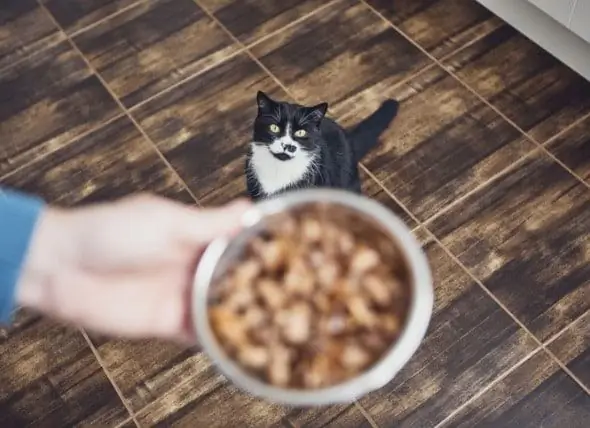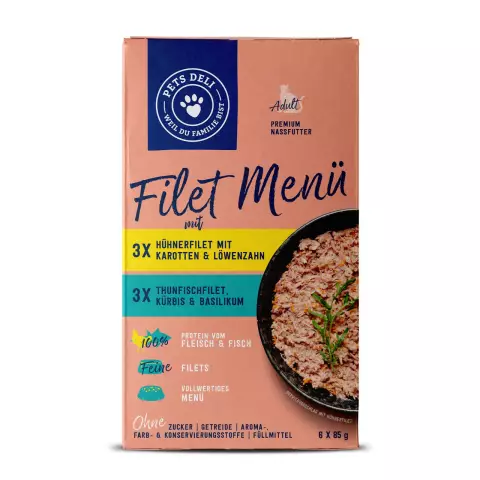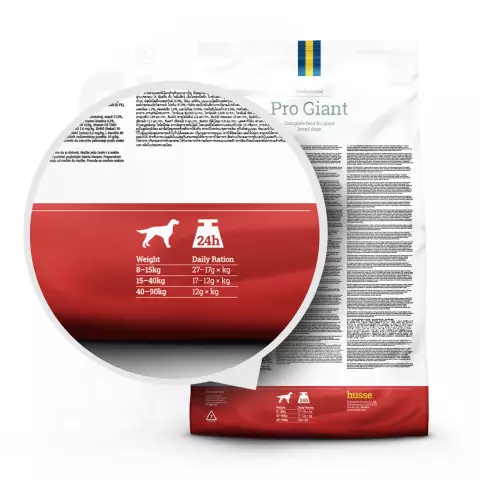
- Автор Daisy Haig haig@petsoundness.com.
- Public 2023-12-17 03:11.
- Акыркы өзгөртүү 2025-01-24 12:39.

as our cats age, they go through a lot of significant physical changes. their nutritional requirements change as well. the lack of knowledge in the area of animal physiology has led many pet owners to unknowingly overfeed their aging pets, which has led to a growing population of overweight and obese pets and the illnesses that accompany these conditions.
the way the body uses energy changes, along with the amount of substance needed to produce energy. this process, known as metabolism, tends to slow down so that the need for fat and calories decreases. cats can generally be maintained on the same level of calories into their later years, but still must be observed for weight changes and their diet adjusted accordingly.
the health and disease link
older cats are already at an increased risk for developing kidney and heart disease, diabetes, arthritis, and various forms of cancer. the immune system also weakens with age, leaving older cats at a higher risk for infection and slowed healing times. for some, there is a genetic breed link that predisposes them to disease. to combat, or to at least mitigate the effects of these conditions, there are diets that have been specially formulated for the special needs of cats.
for example, older cats with kidney disease are fed highly digestible proteins, and those with heart disease are fed diets that are lower in sodium content. cats that have developed problems with brain function may benefit from the addition of certain antioxidants to their daily diets; and cancer patients often benefit from the addition of omega-3 fatty acids, along with additional antioxidants in their diets.
depending on your cat’s health status, immediate dietary changes may be necessary to halt the progression of a disease that has come about. even when the disease cannot be resolved entirely, diet changes can often reduce the more severe effects of the disease. foods that are made with highly digestible sources of fats and proteins can make a significant difference, as they are more readily absorbed, placing less stress on the digestive system and allowing for the body to balance its energy reserves more efficiently.
maintaining the strength of the aging immune system is also a priority, and this can be done with the addition of antioxidants and omega-3 fatty acids in the diet -- both of which are known to boost immunity and improve the body's ability to heal itself.
even if your cat is not suffering from a diseased condition, changes such as these are a practical disease deterrent. consult your veterinarian so that you are tailoring your cat’s diet to his or her specific physical needs.
checkups are important at all ages
because you want to maintain your cat’s health, it is important to remember that veterinary checkups are still as important as when your cat was a small and inexperienced risk taker. monitoring your cat's organ functions will allow your veterinarian to determine if a special diet is necessary or if you can just stick to a modified health maintenance and strengthening diet for aging cats. but aside from diet, the yearly checkup can catch the first symptoms of an impending disease before it has become apparent to you, saving money and heartache over the long term.
Сунушталууда:
Мышыктардын тамактануусу: Мышыктардын тамак-аш азыктары боюнча колдонмосу

Доктор Дженнифер Коутс мышыктардын тамактануусу жана мышыктын тамагы эмне үчүн толук жана тең салмактуу болушу керектиги жөнүндө кеңири маалымат берет
Арткы көйгөйлөрү бар иттердин тамак-аш муктаждыктары

Омурткалар аралык диск оорусу жүрөктү ооруткан оору. Иттерди оорудан айыктырууга жардам берүүнүн бир жолу - орточо деңгээлде май жана углевод бар, протеинге салыштырмалуу жогору тамактануу. Көбүрөөк билүү
Мышыктар үчүн нымдуу тамак, кургак тамак же экөө тең - Мышыктардын тамагы - Мышыктарга эң жакшы азык

Доктор Кейтс адатта мышыктарга нымдуу жана кургак тамактарды берүүнү сунуштайт. Көрсө, анын айтканы туура экен, бирок айтканынан дагы маанилүү себептерден улам
Улгайган иттердин тамак-аш муктаждыктары - Nutrition Dog

Бир нече ай мурун мен күчүктөрдүн тамак-ашка болгон өзгөчө муктаждыгы жөнүндө жазган элем. Бүгүн, спектрдин карама-каршы жагын карап көрөлү. Башкача айтканда, жашообуздагы "жетилген" иттерди кантип багыш керек?
Улгайган иттердин тамак-аш муктаждыктары

Биздин үй жаныбарларыбыздын жашы өткөн сайын, алар бир топ олуттуу физикалык өзгөрүүлөргө дуушар болушат. Алардын азыктануу талаптары да өзгөрөт. Дененин энергияны колдонуу ыкмасы энергияны өндүрүү үчүн керектүү заттын көлөмү менен кошо өзгөрөт. Метаболизм деп аталган бул процесс, айрыкча иттерде жайлап, майга жана калорияга болгон муктаждык төмөндөйт
